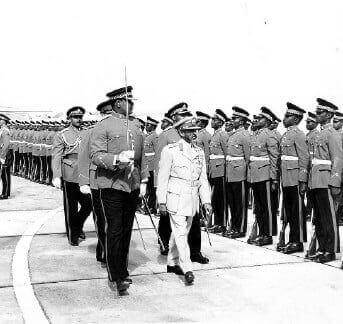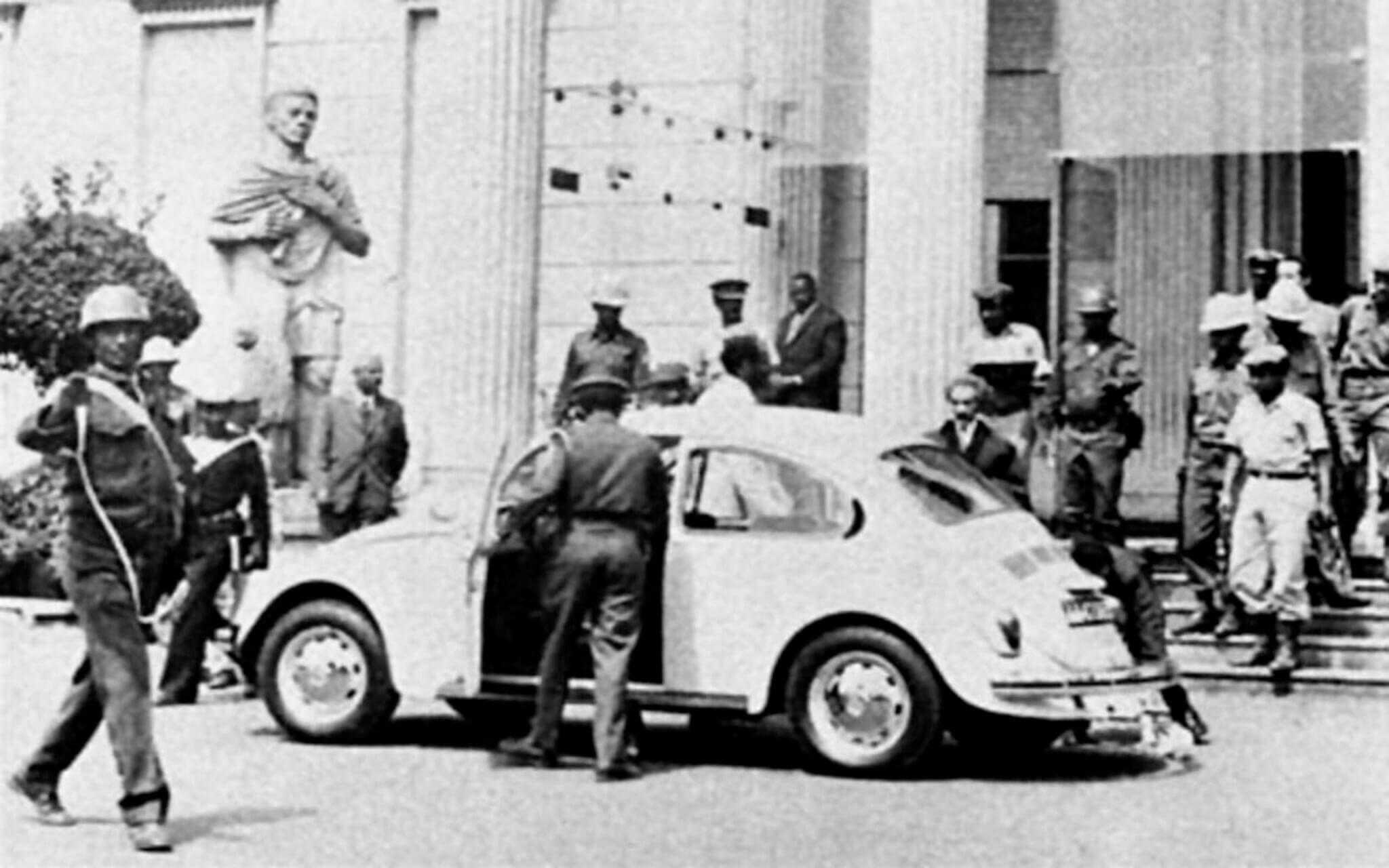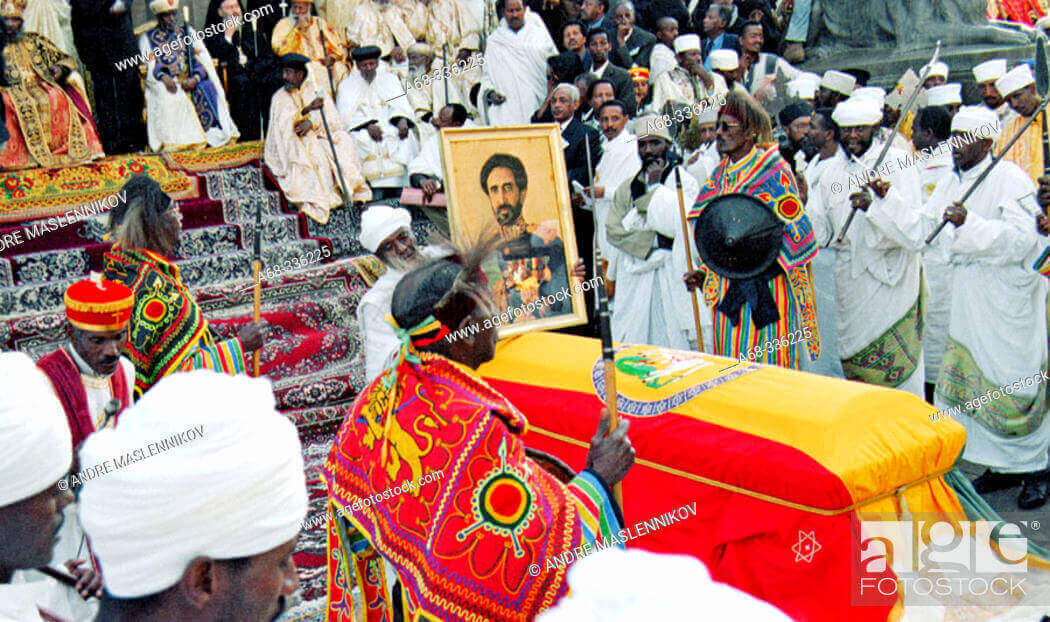The following was written by Charles A. Price of Temple University in the United States for The Conversation, an independent and nonprofit source of news, analysis and commentary from academic experts.

The week of July 23, 2023, thousands of Rastafarians, known for their dreadlocks and for treating marijuana as a sacrament, will gather in Jamaica to celebrate the birth of Haile Selassie I, emperor of Ethiopia.
Estimated to number between 700,000 and 1,000,000 globally, Rastafarian communities are located on almost every continent today. Their beliefs are spread through migration, reggae music, as well as print, visual and digital media.
The first Rastafarian communities emerged sometime around 1931 in eastern Jamaica. The first two generations of Rastafarians were predominantly from African-descended people who belonged to working-class communities.

Many Christians believe that Jesus Christ was both human and divine, and will return to the Earth to reign over a righteous kingdom of his chosen people. Similarly, Rastafarians are of the view that Emperor Selassie is God, or Jah, who manifested in human form, and that they are God’s chosen people. They borrow generously from the King James Bible, braiding their theology around Black and African identity and culture.
Since the mid-1970s, however, Rastafarian views on the emperor’s divinity have varied, in part because Emperor Selassie had died, but also because of an influx of new adherents of varied class, racial and national backgrounds.

Being a Rastafarian, and having researched and studied the faith community, I’ve seen how growing diversity among them has also brought varied views on the former emperor’s divinity.
GOD AS MONARCH
The Rastafari believe that the prophecy of the New Testament of the Bible was fulfilled when the Ethiopian nobleman King Ras Tafari Makonnen, born in the Ethiopian province of Harar in 1892, was crowned the 225th emperor of Ethiopia on November 2, 1930.
Rastafarians believe that the king traces his lineage to the Old Testament’s King David of the Tribe of Judah, and to David’s son, King Solomon. The Kebra Negast, a 14th-century Ethiopian literary epic, tells the story of how the Queen of Sheba visited Solomon, and together they had a son, Menelik I, during ancient times. Menelik I was Ethiopia’s first emperor.
King Ras Tafari assumed the name Emperor Haile Selassie I, or Might of the Holy Trinity, along with commanding titles such as the King of Kings and the Conquering Lion of Judah.
Rastafarians view the king’s coronation in 1930, his titles and his lineage as fulfilling a prophecy in the Book of Revelation. According to Chapter 5, a book of “seven seals” reveals events of the apocalypse many Christians believe will begin once Christ returns – but only the “Root of David”, the “Conquering Lion,” can open it, each revealing events between Christ’s crucifixion and return.
The Rastafari, named for their god – King Ras Tafari – grew from a tiny community to number in the tens of thousands in Jamaica by the 1990s, as I explain in my 2022 book Rastafari: The Evolution of a People and Their Identity.
THE TRAVAILS OF WORSHIPPING A BLACK GOD

Many Jamaicans, especially the elites, ridiculed the Rastafari for anointing an African monarch as a deity. They sought at every turn to prove the Rastafari ludicrous. From the 1930s into the 1970s the Rastafari were scorned by their fellow Jamaicans, subjected to discrimination and violence. Many Rastafari were imprisoned, beaten, and many men forcibly shaven for their beliefs.
Things started to change in 1966 when Emperor Selassie visited Jamaica and hundreds of Rastafari swarmed the Norman Manley Airport in Kingston to greet the emperor. He caused a greater stir by inviting the Rastafari to join him during official state ceremonies.
The emperor’s visit conferred respect on the Rastafari, attracting new converts, such as Rita Marley, reggae music singer and wife of reggae superstar Bob Marley. The Rastafari became paragons of Black identity, culture and history.
In 1975, press announcements that Emperor Selassie was dead sparked an existential crisis for the Rastafari. In a coup led by the Ethiopian politician and soldier Mengistu Haile Mariam, the emperor was imprisoned and allegedly murdered.
Some critics asserted that the Rastafari finally had been proved foolish and that their God was dead. Bob Marley rebuffed the critics in his acclaimed song, “Jah Live” (meaning God lives).
WHAT HAPPENS IF GOD DIES?

The Rastafari responded to the announcement in several ways. Some denied Emperor Selassie was dead, insisting that God cannot die, and no body was found to confirm the death. Years later, bones said to be those of Emperor Selassie were recovered from a pit beneath Menelik Palace in Ethiopia, but never confirmed to be the emperor’s.
Others said only time would reveal the meaning of the emperor’s disappearance, since God’s ways are beyond the ken of mortals.
Another view was that the emperor’s disappearance signalled the beginning of a new era on Earth, much like Christ rising from death. In the new dispensation, these followers believed, the Rastafari must act as the emperor’s anointed and must continue the traditions, knowledge and communities they have birthed.
Some others believed that the emperor was worthy of veneration but not as God. This had a lot to do with the increasing diversity of the Rastafarians in Jamaica and internationally.
In Jamaica, middle-class Rastafarians known as the Twelve Tribes of Israel are more likely to subscribe to this view, as are many Africans who identify as Rastafarians. However, the doctrine of the Emperor as God remains predominant.
There are also those who continue to wonder why so many Rastafari reject the idea that the emperor is dead. As I argue in my book, claiming that the emperor still lives, without conclusive evidence, requires faith – just as it does for Christians – who believe that Jesus Christ is immortal.

One of our commies once told us at an indoor rally while I was on vacation in Europe the late emperor’s armed forces were slaughtering peaceful demonstrators in the capital that the streets of Addis/Finfine was flooded with human blood. He told us that every demonstrator that was demanding land to the poor tiller was shot by the late emperor’s armed forces. It was surreal and everyone in the started shouting with ‘death to the ancien regime! Death to feudal emperor!’ The leader agitator commie explained why the massacre was not been reported on the Western media. He told us because the emperor and his regime is a tool of imperialism. Then the condemnation turned on the Western Imperial. In a sense it was theatrical and well planned by the operatives of rebel groups fighting for a complete secession. Those operatives usually get the emotion of the youth so worked on Saturdays and Sundays and they used to be seen in the streets protesting the ‘bombing’ of civilians in their province. So when I heard that news of massacre I was shaken up worrying about the merchant relatives I had in the capital. I called first thing on Monday and asked them if they were all okay. They were wondering why I was asking that question. I told them what I heard over the weekend that there was a huge massacre of demonstrators. ‘What blood bath? There were hooligans in the streets throwing rocks at public transportation buses and the police used sticks and tear gas to disperse them. The language one of the commie spears was using to insult the late emperor was so rude and uncalled for. Almost everyone in that rooms was so angry that they want to take to the bushes to fight the ‘feudal emperor and his sponsor imperialism’. But they got their wishes of bloodshed not during the emperor’s time but Mengistu gave it to them in upwards of 500,000 just at one sitting in 1977-78 alone. I bet you some of those ‘brave and gallant’ speakers/agitators are sitting some where out there(if they are still alive) and giving is a hoodwink. That is how all commies are. You now know why I have such utter contempt for commies. Now they have propagated into deadly bigots pitching one ethnic group against his historic harmonious neighbor.
Make that:
1) One of our commies once told us at an indoor rally while I was on vacation in Europe in the closing months of 1960’s decade how the late emperor’s armed forces were slaughtering peaceful demonstrators in the capital that the streets of Addis/Finfine was flooded with human blood.
2) I bet you some of those ‘brave and gallant’ speakers/agitators are sitting some where out there(if they are still alive) and giving us a hoodwink.
TO ITTU ABA FARDA ; your memory is very sharp to remember what happened in the 1960,s and 1970’s and criticize the emperor and the military regime, but you con not see the death and displacement of millions people in ABIY’s ETHIOPIA. This is what narro ethnicity and intellectual prostitution means.
TO ITTU ABA FARDA ; your memory is very sharp to remember what happened in the 1960,s and 1970’s and criticize the emperor and the military regime, but you con not see the death and displacement of millions people in ABIY’s ETHIOPIA. This is what narro ethnicity and intellectual prostitution means.